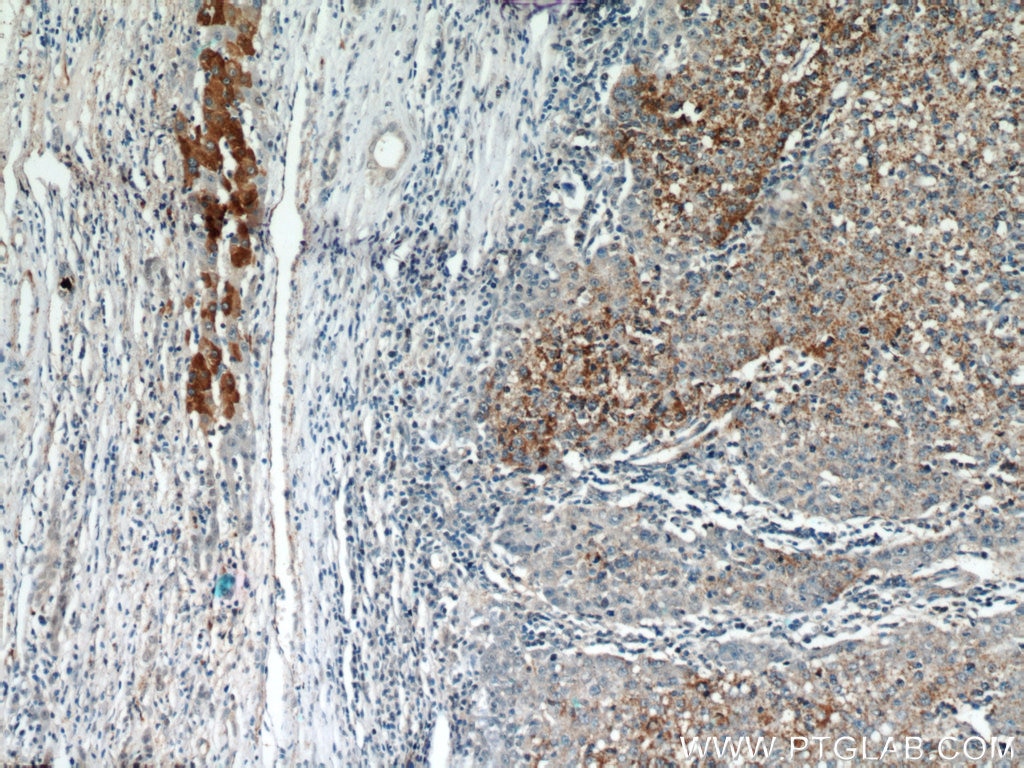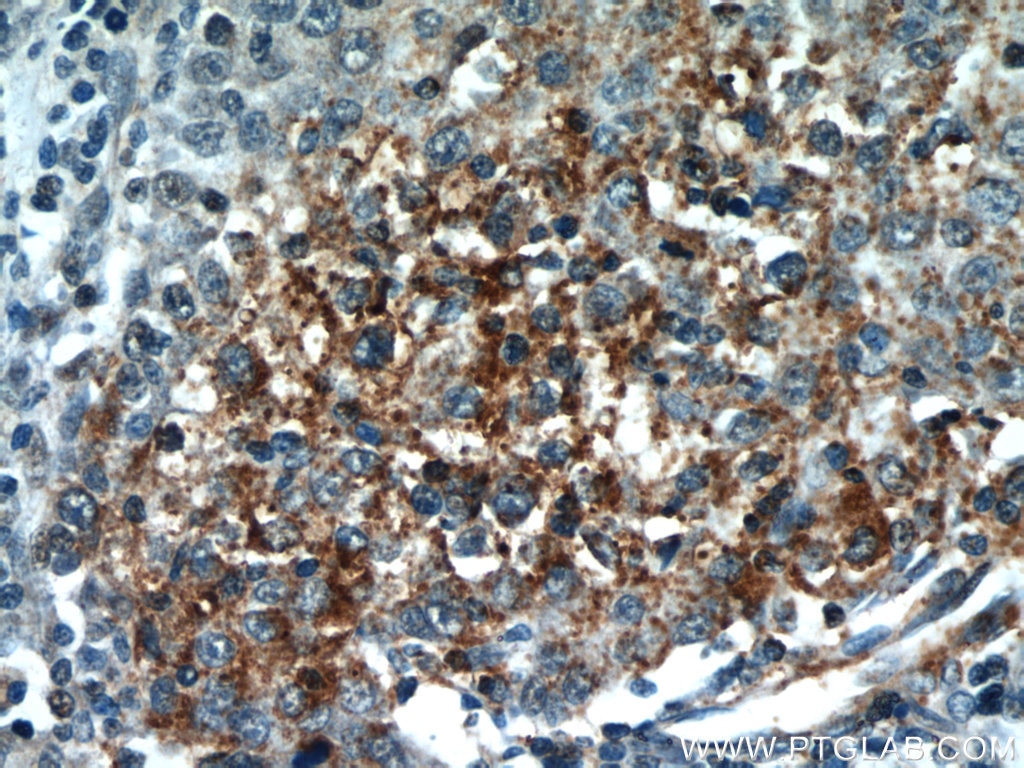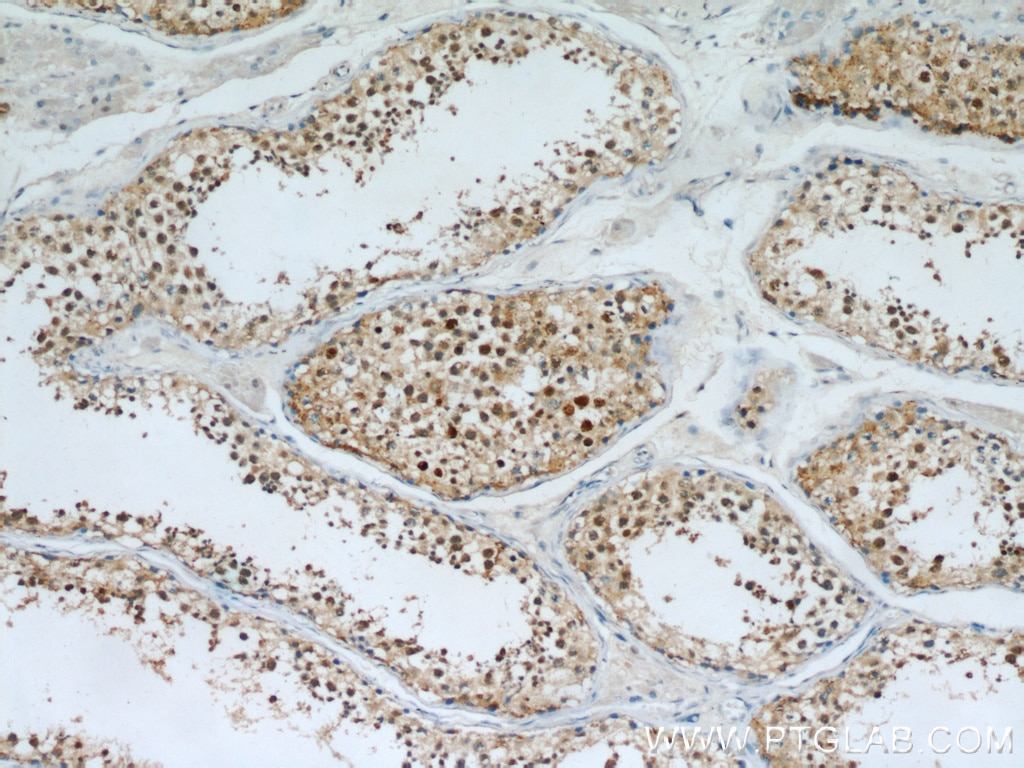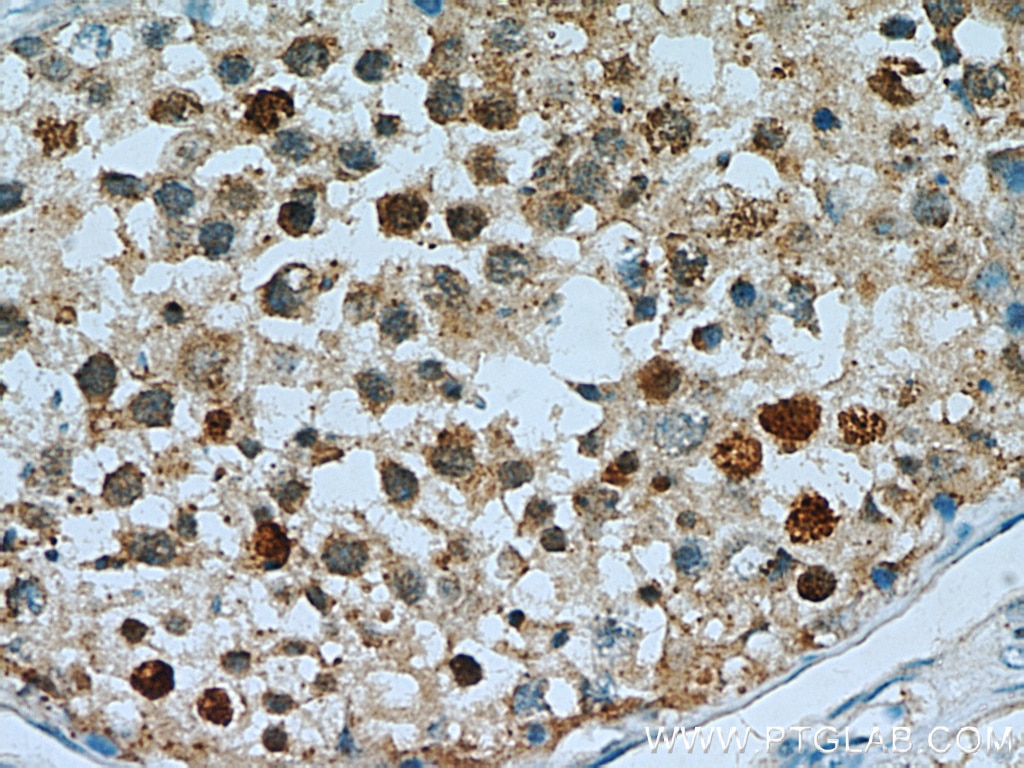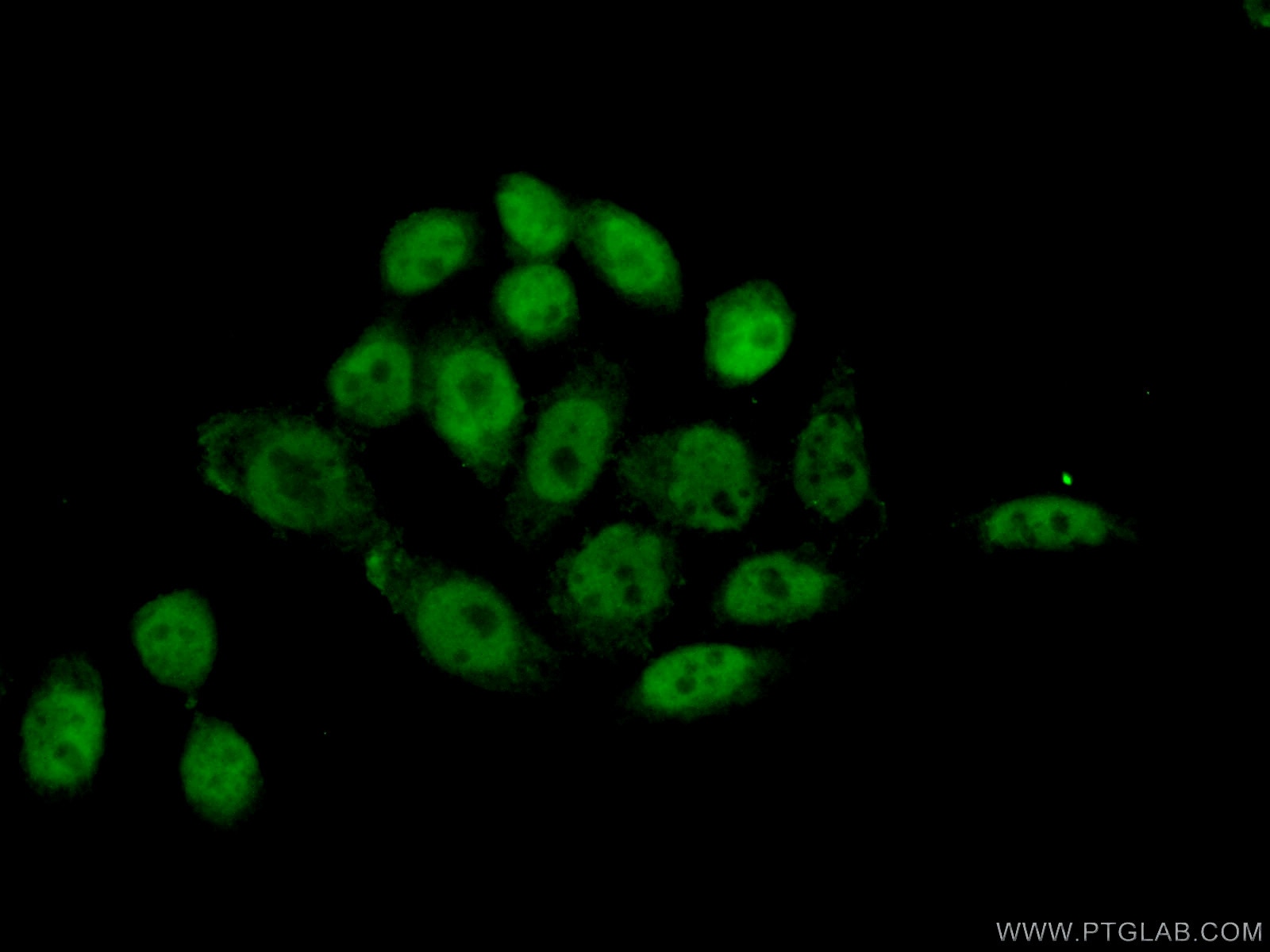Tested Applications
| Positive IHC detected in | human liver cancer tissue, human testis tissue Note: suggested antigen retrieval with TE buffer pH 9.0; (*) Alternatively, antigen retrieval may be performed with citrate buffer pH 6.0 |
| Positive IF/ICC detected in | HeLa cells |
Recommended dilution
| Application | Dilution |
|---|---|
| Immunohistochemistry (IHC) | IHC : 1:20-1:200 |
| Immunofluorescence (IF)/ICC | IF/ICC : 1:50-1:500 |
| It is recommended that this reagent should be titrated in each testing system to obtain optimal results. | |
| Sample-dependent, Check data in validation data gallery. | |
Published Applications
| WB | See 16 publications below |
| IHC | See 2 publications below |
| IF | See 1 publications below |
Product Information
21739-1-AP targets PI3 Kinase p110 Beta in WB, IHC, IF/ICC, ELISA applications and shows reactivity with human samples.
| Tested Reactivity | human |
| Cited Reactivity | human, mouse, rat |
| Host / Isotype | Rabbit / IgG |
| Class | Polyclonal |
| Type | Antibody |
| Immunogen |
CatNo: Ag16456 Product name: Recombinant human PIK3CB protein Source: e coli.-derived, PGEX-4T Tag: GST Domain: 139-373 aa of BC114432 Sequence: SLKDPEVNEFRRKMRKFSEEKILSLVGLSWMDWLKQTYPPEHEPSIPENLEDKLYGGKLIVAVHFENCQDVFSFQVSPNMNPIKVNELAIQKRLTIHGKEDEVSPYDYVLQVSGRVEYVFGDHPLIQFQYIRNCVMNRALPHFILVECCKIKKMYEQEMIAIEAAINRNSSNLPLPLPPKKTRIISHVWENNNPFQIVLVKGNKLNTEETVKVHVRAGLFHGTELLCKTIVSSEV Predict reactive species |
| Full Name | phosphoinositide-3-kinase, catalytic, beta polypeptide |
| Calculated Molecular Weight | 1070 aa, 123 kDa |
| Observed Molecular Weight | 110 kDa |
| GenBank Accession Number | BC114432 |
| Gene Symbol | PI3 Kinase p110 Beta |
| Gene ID (NCBI) | 5291 |
| RRID | AB_10755305 |
| Conjugate | Unconjugated |
| Form | Liquid |
| Purification Method | Antigen affinity purification |
| UNIPROT ID | P42338 |
| Storage Buffer | PBS with 0.02% sodium azide and 50% glycerol, pH 7.3. |
| Storage Conditions | Store at -20°C. Stable for one year after shipment. Aliquoting is unnecessary for -20oC storage. 20ul sizes contain 0.1% BSA. |
Background Information
PIK3CB(phosphatidylinositol 4,5-bisphosphate 3-kinase catalytic subunit beta isoform) is also named as PIK3C1, PI3K-beta, p110beta. The gene encodes a 1070 amino acid protein which belongs to the PI3/PI4-kinase family. Phosphoinositide 3-kinases (PI3Ks) have been implicated as participants in signaling pathways regulating cell growth by virtue of their activation in response to various mitogenic stimuli. The class I PI3 kinases are heterodimers composed of 110 kDa catalytic subunits that associate with regulatory adaptor proteins. Four class I catalytic subunits have been identified, PIK3CA (p110α), PIK3CB (p110β), PIK3CD (p110δ) and PIK3CG (p110γ)(PMID:19177002).
Publications
| Species | Application | Title |
|---|---|---|
J Adv Res Salidroside sensitizes Triple-negative breast cancer to ferroptosis by SCD1-mediated lipogenesis and NCOA4-mediated ferritinophagy | ||
Cell Mol Gastroenterol Hepatol Mannan-binding lectin via interaction with cell surface calreticulin promotes senescence of activated hepatic stellate cells to limit liver fibrosis progression. | ||
Biochem Pharmacol TANGO1 interacts with NRTN to promote hepatocellular carcinoma progression by regulating the PI3K/AKT/mTOR signaling pathway | ||
J Ethnopharmacol Root extract of Hemsleya amabilis Diels suppresses renal cell carcinoma cell growth through inducing apoptosis and G2/M phase arrest via PI3K/AKT signaling pathway | ||
Cells Determination of WWOX Function in Modulating Cellular Pathways Activated by AP-2α and AP-2γ Transcription Factors in Bladder Cancer. | ||
J Zhejiang Univ Sci B Silencing of DsbA-L gene impairs the PPARγ agonist function of improving insulin resistance in a high-glucose cell model. |

